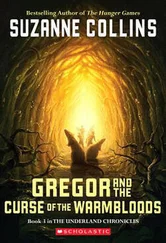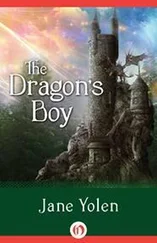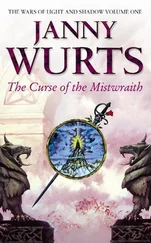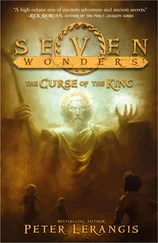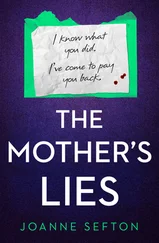“I shouldn’t have to,” returned my master calmly. He did not appear fazed by this vehement outburst. “Least of all with you, John.”
“Oh, that . What a hypocrite you are, Warthrop. You must be a hypocrite; you’re too intelligent for any other explanation. Throwing yourself into that river was the ultimate act of vanity and self-centeredness. ‘Woe is me, poor tragic Pellinore!’ Pitiful! I wish you had drowned.”
The doctor refused to rise to the bait. “You have been through a terrible ordeal,” he said gently. “I understand you are not yourself, but I pray in time you’ll see your anger is misdirected, John. I am not the one who sent you here; I am the one who brought you out.”
I thought of him crashing to the frozen ground, Chanler cradled in his arms, and the wild look in his eyes when Hawk tried to help him with his burden—the revolver inches from Hawk’s face—and his broken cry so pitiably small in the unforgiving desolation: No one touches him but me!
“One and the same,” whispered his friend cryptically. “One and the same.”
Before Warthrop could ask the meaning of this remark, a knock came upon the door. The doctor stiffened at the sound and briefly closed his eyes, breathing to himself, “We have stayed too long.”
Muriel Chanler stepped into the room, seeing Warthrop first and saying to him, “Where is John?”
Then she saw him, huddled in the little chair, a man who appeared twice as old as when she’d seen him last, pale and shriveled, ground down by the wilderness and the exorbitant cost of desire. She gave an involuntary gasp; her eyes welled with tears.
Chanler tried to rise, failed, tried again. He rocked unsteadily upon his feet. He seemed taller than I remembered.
“Here I am,” he croaked.
She hurried toward him, slowed, stopped. She touched his cheek tenderly. The moment was heartrending and intensely private. I looked away—toward the author of the play, who had endured the unendurable so he might stage this scene—the woman he loved in the arms of another man.
“John?” she asked, as if she could not quite believe it.
“Yes,” he lied. “It’s me.”
FIFTEEN
“We Should Be Honest with Each Other”
We saw them to the depot. As the porter was helping her husband board their private car, Muriel laid her hand upon the doctor’s arm.
“Thank you,” she said.
He eased his arm away. “It was for John,” he said.
“You thought he was dead.”
“Yes. You were right and I was wrong, Muriel. See to it he’s looked after; he is far from recovered.”
“Of course I will.” Her eyes flashed. “I have every hope in his recovery.”
She bade me good-bye. “I kept my promise, Will.”
“Promise, ma’am?”
“I prayed for you.” She glanced at the doctor. “ Half of it was answered, at least—you’re not dead.”
“Not yet,” said Warthrop. “Give it time.”
I wasn’t sure, but it appeared she was fighting back a smile.
“Will I see you in New York?” she asked him.
“I will be in New York,” he said.
Now she did laugh, and it was like rain after a long, dry season.
The locomotive’s whistle shrieked. Black smoke belched from the stack.
“Your train is leaving,” the monstrumologist pointed out.
We remained on the empty platform until the train was well out of sight. The first stars were coming out. A loon cried mournfully against the dying of the light. The onset of darkness made me shiver more than the cold. Though miles from it, I was still very close to that spot where a man lay broken in half beneath the frozen ground.
“When will we be going home, sir?” I asked.
“Tomorrow,” he answered.
I’d never been so happy to see that old house on Harrington Lane. I fairly bounded from our hansom when we pulled up, and kneeling to kiss the doormat would not have been out of keeping with my joy upon finding myself there. It seemed nothing short of miraculous. How I had hated that house—and now how I loved every single creaky old inch of it! Nothing makes us love something more than the loss of it—I think the monstrumologist would have agreed with that.
I would have never left it again, but the packing began first thing the following morning. In the afternoon there were errands to run—to the post office, the Western Union office, the laundry shop, the tailor’s, and last, but certainly not least, the baker’s for a basket of raspberry scones. The doctor, it appeared, had missed his scones the most. He worked late into the evening practicing his presentation, assuming—he was Pellinore Warthrop, after all—the absolute worst case. Despite his lack of an actual physical specimen, von Helrung would proceed to argue for the inclusion of Lepto lurconis and its myriad mythological cousins in the monstrumological canon.
The night before our departure for New York, a very odd thing happened—practically the oddest thing to happen between us up to that point. I was drifting off to sleep when his head popped through the little trapdoor to my alcove and, with an uncharacteristic chagrined expression, he softly asked if I was awake.
“Yes, sir,” I replied. I sat up and lit the lamp beside the bed. In its glow the doctor’s face seemed to float against the backdrop of profound darkness. I was a bit unnerved, to be honest, for in our history he had never come to my bedside in the middle of the night. It was always I who was summoned to his.
“Can’t sleep either, then?” He sat at the foot of the bed. He looked about the tiny space, as if he, who had grown up in this house, had never seen it before. “You know, you might consider moving into one of the bedrooms on the second floor, Will Henry.”
“I like it up here, sir.”
“Do you? Why?”
“I don’t know. I guess I feel more . . . safe here.”
“Safe? Safe from what?”
He looked away. He did not seem to be waiting for an answer to his question, though he did seem to be waiting for something. What was it? Why had he come like this? It was not in his character.
“I spent many hours in this room when I was a child,” he said, gently breaking the silence. “Our past dictates our perceptions, Will Henry. I could never associate this room with safety.”
“Why?”
“I was quite sickly as a child—one of the reasons, though not the chief reason, my father sent me away. To ‘toughen you up a bit,’ were his words. Every time I fell ill, and that was often, I was banished to this attic, lest my contagion run through the entire household. . . .” He was staring through the little window over my head, to the glistening stars beyond.
“My mother died when I was ten; I believe I have told you that. Consumption. My father, though he never said it outright, blamed me. From the hour of her death, my days in this house were numbered. He withdrew from me and, although we shared the same rooms and supped at the same table, I was abandoned—as he was—both of us wrapped within the cocoon of our grief. He threw himself into his work—and threw me onto a boat to England. I would not see him again for almost fifteen years.”
I tried to think of something that would comfort him. “I’m sorry, sir” was the best I could muster.
He frowned. “I am not seeking pity, Will Henry. I was discussing how our perceptions are shaped by our individual experience, thus calling into question the whole notion of objective truth. We cannot trust our perceptions—that is my point.”
He abruptly cut short the lecture, looking away again, considering, by all appearances, the blank wall opposite the bed.
“I spent untold days up here, wracked with fevers and coughs, while upon the street below I could hear the laughter of the neighborhood children, their joy a cruelty I could hardly bear.”
Читать дальше

